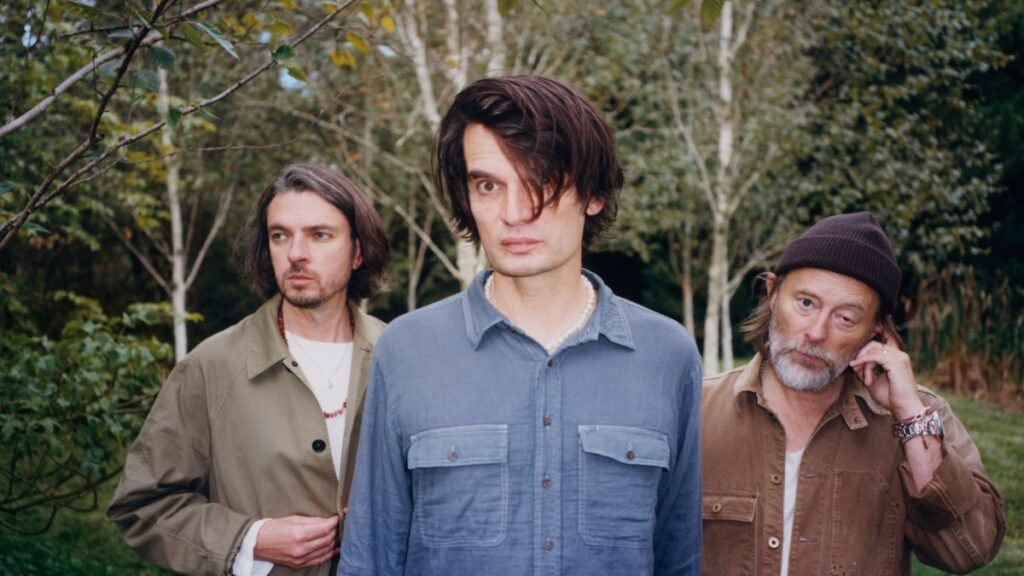The Smile’s first era was shrouded in Radiohead smoke — and understandably so. Two-thirds of the trio’s lineup comes from the legendary British act, and their debut record, A Light for Attracting Attention, while impressive, often sounded like the musicians’ former band. And yet, with the act’s latest effort Wall of Eyes, Thom Yorke, Jonny Greenwood, and drummer Tom Skinner seem to be pushing the limits of what The Smile can be, carving out the project’s unique identity in real-time with uncompromising compositions that are as unconventional as they are tuneful.
Wheres A Light for Attracting Attention was a shotgun blast of musical ideas, jumping from Anima-esque electronic soundscapes (“The Smoke,” “Open the Floodgates”) to groovy art rock (“The Opposite,” “Thin Thing”) to angsty rockers (“We Don’t Know What Tomorrow Brings”) to orchestra-backed tear-jerkers (“Free In the Knowledge”), Wall of Eyes hones in on a singular vision. The lads have put down their shotguns for snipers.
And what’s in Wall of Eyes‘s crosshair? A swirling, vibrant world that distills the foundation of its predecessor down to the essentials before letting what’s left bloom and mutate into its own beast. Wall of Eyes is the sound of a more confident, collaborative The Smile, a version of the band willing to let their ideas ferment, even at the expense of immediacy. No track on the album rushes out of the gate with the hurried intensity of their 2022 debut single “You Will Never Work in Television Again.” Instead, these songs start reserved, only revealing their true scope as they move through their extended runtimes.
The eponymous opener establishes the band’s newfound emphasis on subtle, building compositions. Muffled tom beats and a samba-like acoustic guitar slowly give way to surreal flourishes of reverberating, ominous ambiance via the meeting of strings and electronics — all in 5/4 time. Unsettling tension rises throughout, ultimately resulting in the song caving in on itself as a flurry of chromatic electric guitar notes attack the once-peaceful landscape of “Wall of Eyes.”
Later tracks “Teleharmonic” and “I Quit” pull similar tricks, allowing relatively simple beginnings to mature as new sonic textures are added one at a time. The former’s modulating synth pads find warmth in fleeting moments of organic instrumentation, while the latter’s manipulated guitar chords turn from intriguing to suspenseful as Greenwood’s trademark orchestration makes its presence known.
Such strong musical arcs give the songs of Wall of Eyes a distinct feeling of cohesion, one that, in retrospect, was somewhat missing on A Light for Attracting Attention. Even when that album did dip its toe into the dynamic waters of methodical construction and linear progressions, like “A Hairdryer” or “Skirting on the Surface,” the results felt insular, a compelling but disconnected story rather than a piece working in the interest of a larger work. If Wall of Eyes is Pulp Fiction, spinning separate tales that intersect, A Light for Attracting Attention is an anthology.

